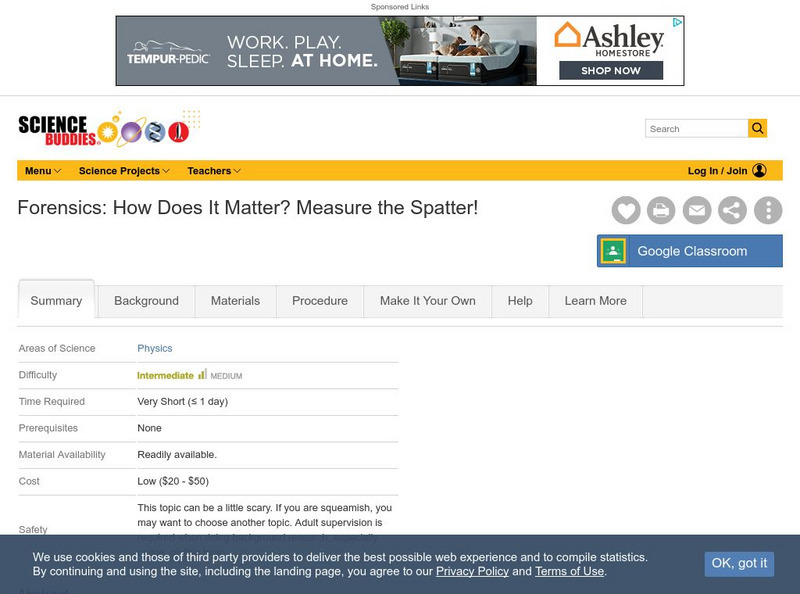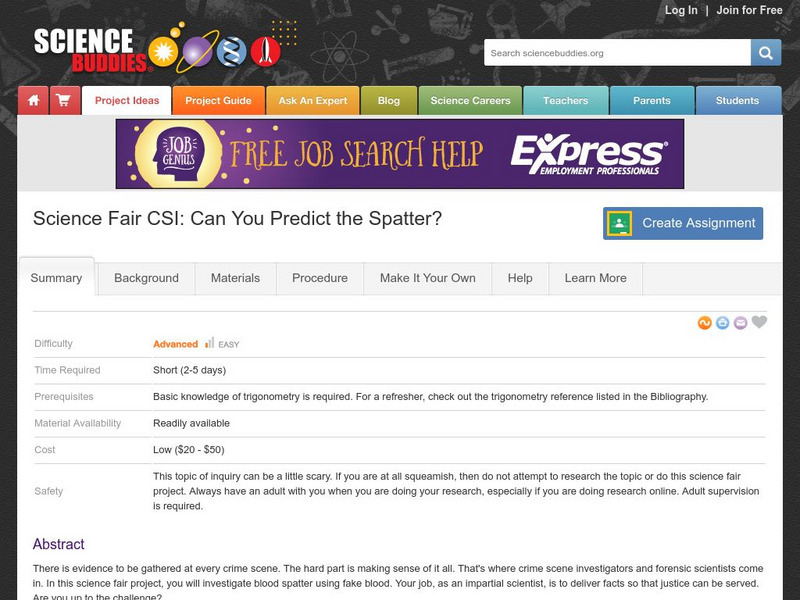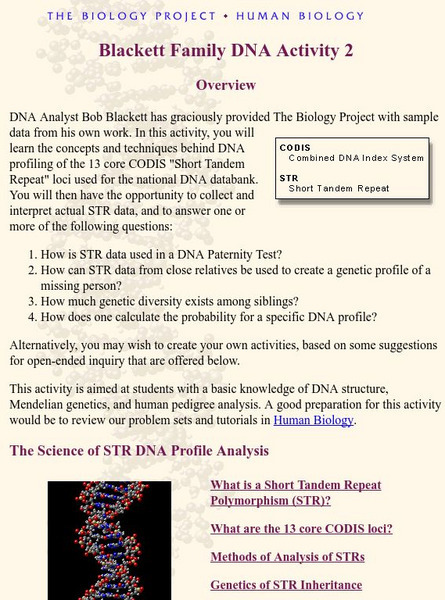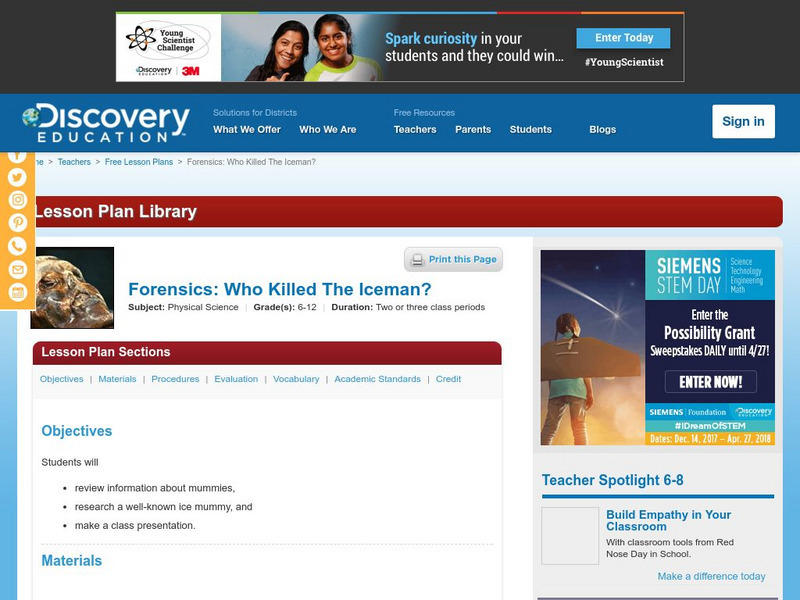Curated OER
Who's the Father?
Students analyze gels to determine parentage in this lesson about scientific evidence, investigation, and DNA concepts. The lesson includes a pre-activity worksheet, a final individual assessment, and student handouts for in-class...
Curated OER
Get a Life!
Students read a New York Times article associated with the issue of the decoding for genomes, the creation of life in scientific laboratories and various genetic engineering topics. They present speeches of the pro's and con's of these...
Curated OER
Civic Engagement for Us?
Students identify the different forms of civic engagement. They identify their responsibilities at the different levels of government. They also analyze young leaders running for office.
Curated OER
Potato Launcher Energy Lab
Students investigate conservation laws using a potato launcher. In this physics lesson, students measure angles, time and distance of the potato. They discuss applications of experiments like this.
Science Buddies
Science Buddies: Forensic Science: Building Your Own Tool for Identifying Dna
When biologists want to separate different pieces of DNA, RNA, or proteins they use a technique called gel electrophoresis. In this science project you'll build a gel electrophoresis chamber and use it to discover how many components are...
Science Buddies
Science Buddies: Forensics: How Does It Matter? Measure the Spatter!
Every criminal leaves behind evidence at the crime scene. The trick to catching the criminal is collecting all of the evidence and making sense of it. This is what the forensic expert does. In this science project you will be correlating...
Science Buddies
Science Buddies: Science Fair Csi: Can You Predict the Spatter?
There is evidence to be gathered at every crime scene. The hard part is making sense of it all. That's where crime scene investigators and forensic scientists come in. In this science fair project, you will investigate blood spatter...
Science Buddies
Science Buddies: Testing for Bias in a Photo Lineup
You may have read about criminal cases where innocent people have been wrongly convicted of a crime. Sometimes, modern DNA analysis techniques have provided the evidence to exonerate these innocent people. In many cases, mistaken...
Science Buddies
Science Buddies: Eeeeew! Maggot Mass Temperature
If you're looking for an experiment that will gross out just about everyone, you probably can't do much better than this. This project investigates an important question in the field of forensic entomology. Just make sure to get...
Science Buddies
Science Buddies: Who Done It? Dna Fingerprinting and Forensics
DNA fingerprinting (also known as DNA profile analysis and DNA typing), is a method of distinguishing between individuals by analyzing patterns in their DNA. This project focuses on the first method of DNA fingerprinting to be developed,...
Oak Ridge National Laboratory
Oak Ridge National Laboratory: Dna Forensics
A concise explanation of the use of DNA technologies in forensic identification from the Oak Ridge National Laboratory. Additional valuable resources are provided.
Science Buddies
Science Buddies: The Case of Mistaken Identity
Mysteries and detective stories have been popular since the time of Sherlock Holmes. The solutions to these fictional cases often involve untangling seemingly contradictory evidence from eyewitnesses. This project studies one procedure...
University of Arizona
The Biology Project: Human Biology: Blackett Family Dna Activity
Family studies are a good way to learn about DNA profiling and RFLP analysis because students can follow the inheritance of DNA markers from one generation to the next. Students have the opportunity to do this in this activity.
University of Arizona
The Biology Project: Human Biology: Blackett Family Dna Activity 2
In this activity, students learn the concepts and techniques behind DNA profiling of the national DNA databank. Students will then have the opportunity to collect and interpret actual STR data, and to answer one or more questions.
Discovery Education
Discovery Education: Who Killed the Iceman?
This website provides a lesson plan (grades 8-12) for a science class on the examination of two different mummies, one being the Iceman from the Alps who is believed to be 5,300 years old while the other is an Inca girl about 500 years...
PBS
Pbs Learning Media: Dna on the Witness Stand
Dr. Eric Lander of the Human Genome Project explains the use of DNA as forensic evidence. He describes the process and need for standards in testing laboratories and discusses the use of DNA evidence as a human rights tool.
BiologyWise
Biology Wise: Uses of Dna Fingerprinting
Explains what DNA profiling is and describes some of the many ways it is used.















